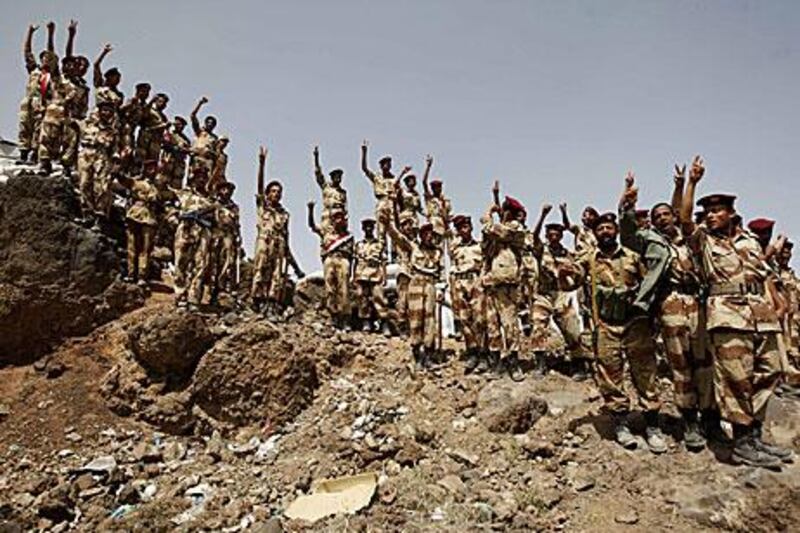SANAA // If 2011 in Yemen was about the explosion of long-held grievances over the rule of President Ali Abdullah Saleh, 2012 is likely to be about trust - or more specifically, the lack of it.
The deal brokered by the Gulf Cooperation Council and the United Nations that is to culminate with the election of a new president in February, will test whether the scars and betrayals inflicted during the upheavals of 2011 can be set aside long enough to make the transition work.
Mr Saleh set a poor precedent himself, agreeing three times this year to sign the power-transfer deal and reneging each time at the last minute, only to finally agree to the plan last month when the pressure at home and from one-time allies abroad became irresistible.
Even if Mr Saleh steps out of character and actually follows through with the deal, it is by no means certain that his major bequest to Yemen - the country's powerful military - will do its part.
A newly established military committee has been assigned the task of demilitarising the streets of Yemen's major cities and restructuring the armed forces.
These are challenges for an institution built not on experience and skill but on patronage, tribal affiliations and nepotism - the latter no better illustrated than by the continued control of Mr Saleh's sons and other relatives over the military's key units.
This overhaul must be done against the background of a simmering Shiite Houthi insurgency in the north, a secessionist movement in the south and last but not least, a campaign against Al Qaeda. The United States is supplying millions of dollars of military aid for that effort.
Trust is also sorely lacking - and desperately needed next year - between the youths who have led the protests against the Saleh regime and establishment politicians who are poised to be the chief beneficiaries of the GCC-brokered deal.
The decision to grant Mr Saleh immunity from criminal prosecution in exchange for stepping down from office, however, may be more than the idealistic and now experienced demonstrators can stomach and Abdurabu Mansur Al Hadi, Yemen's interim leader and putative successor to Mr Saleh, can navigate. If so, it may only be a matter of time before the streets of Sanaa and Taiz once again become scenes of bloody confrontation.
A faltering economy will only make matters worse. The success of the protests in pushing Mr Saleh at least half way out the door has aroused the expectations of many Yemenis for a better life. Workers demanding raises and an end to corruption, as well as threatening labour strikes, will be asked to trust the new government's commitment to reform. Yemen's new leaders may not like the answer.
"Reconciliation" will be a much bandied about word in Yemen in 2012. Saying it and actually doing it, however, are likely to prove far different tasks.





